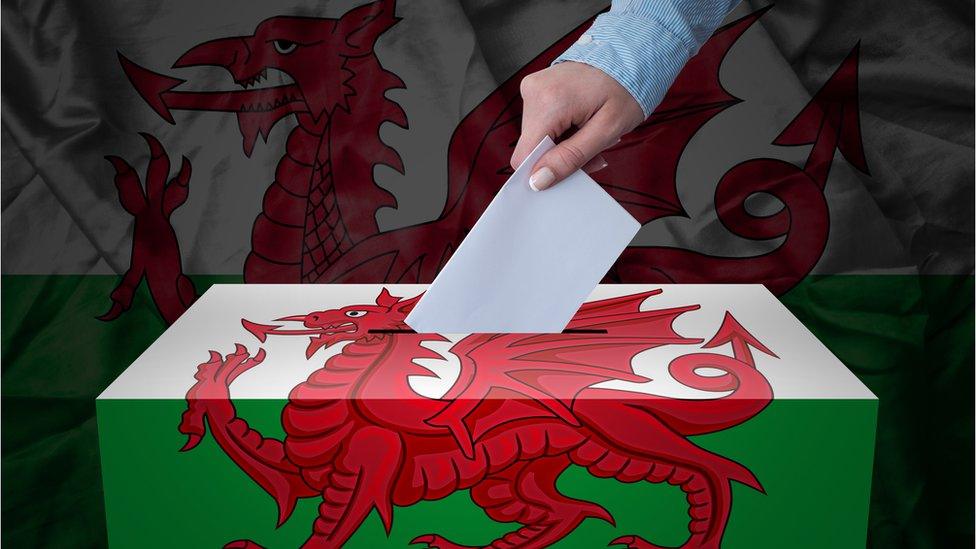Welsh elections: At least 35,000 young people not registered to vote
- Published
Welsh elections 2021: Younger voting age welcomed by teens
Tens of thousands of young people have not taken up the chance to vote for the first time at the Senedd election.
On Thursday, 16 and 17-year-olds will be able to vote in the Welsh Parliament election after the voting age was lowered.
However, figures compiled by the BBC suggest 54% of young people have failed to register to vote in Thursday's poll.
The data compares numbers registered with population estimates for 21 of Wales' 22 council areas.
Figures show 2,421,108 people in Wales - about 76.7% of the whole population - are registered.
James Williams looks at how age could affect the result of the Senedd election
Out of an estimated 65,000 16 and 17-year-olds in the 21 council areas, only 30,349 have registered to vote.
This means an estimated 54% of the age group - or 35,051 people - will not have the chance to have their say.
Powys did not provide figures for the number of 16 and 17-year-olds registered and is not included in the young voter estimates.

SIGN UP FOR WALES ALERTS: Get extra updates on BBC election coverage

How many people are registered in my area?
Once the votes are cast and the polls close on 6 May, what's next? Tyler Edwards explains
The proportion of young people registered differs widely across Wales.
The Vale of Glamorgan has the highest percentage, with an estimated 68.6% (2,080) registered.
In Swansea, an estimated 31.73% (1,651) have signed up, the lowest rate in the areas which provided data.
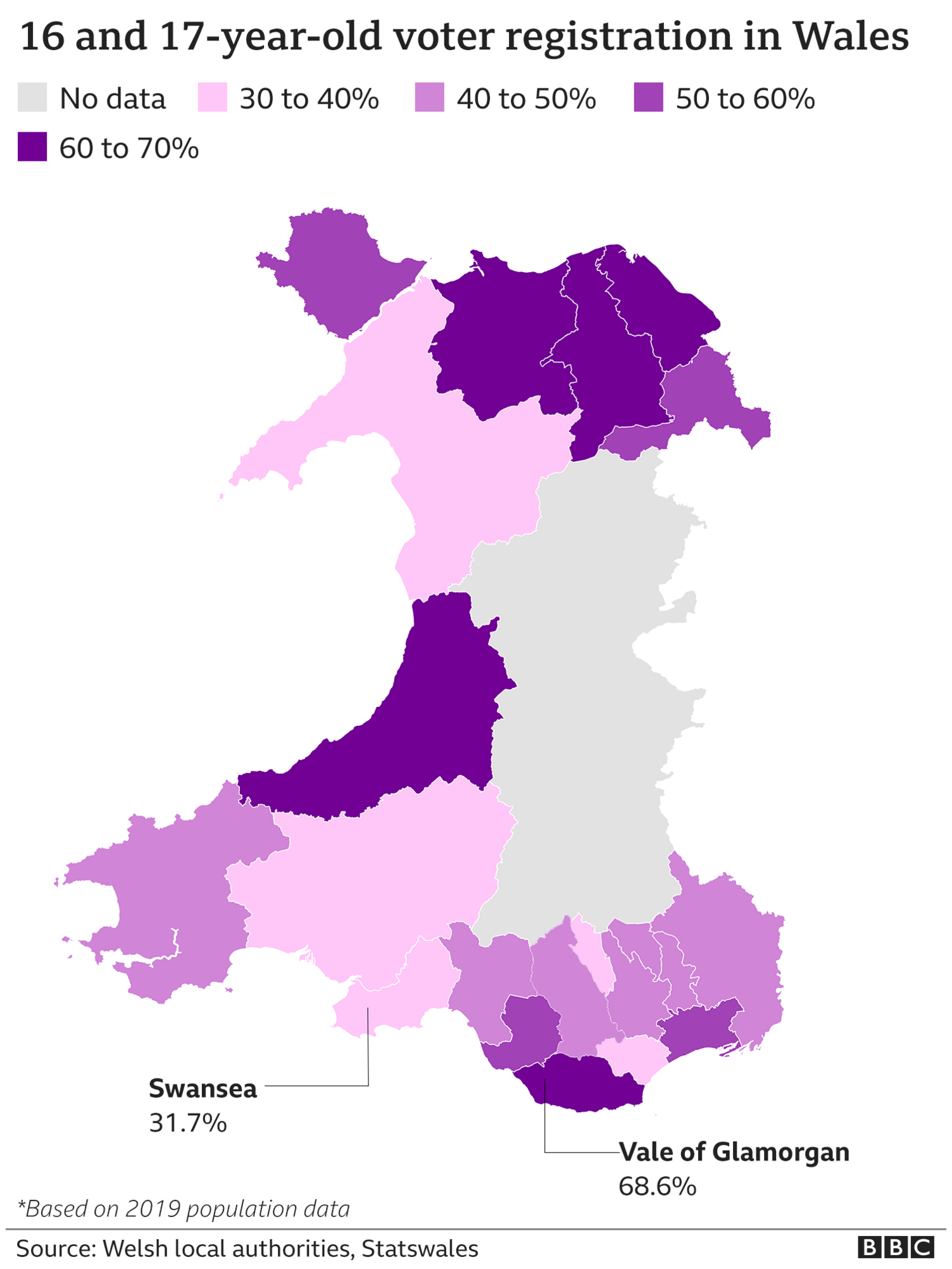

Anglesey: 791 (56.34%)
Blaenau Gwent: 704 (49.37%)
Bridgend: 1,602 (50.30%)
Caerphilly: 1,961 (47.26%)
Cardiff: 2,546 (34.72%)
Carmarthenshire: 1,438 (34.76%)
Ceredigion: 908 (63.01%)
Conwy: 1,477 (61.13%)
Denbighshire: 1,299 (61.01%)
Flintshire: 2,192 (60.70%)
Gwynedd: 994 (39.81%)
Merthyr Tydfil: 491 (38.94%)
Monmouthshire: 938 (44.31%)
Neath Port Talbot: 1,259 (40.19%)
Newport: 1,857 (51.55%)
Pembrokeshire: 1,328 (48.17%)
Rhondda Cynon Taf: 2,194 (40.94%)
Torfaen: 887 (42.66%)
Wrexham: 1,752 (56.03%)
Numbers provided by each council were compared to the population age estimates for each of the areas from 2019, external, to estimate what percentage of young people had registered to vote.
The lowering of the voting age for the Senedd election follows Scotland, where 16 year-olds were allowed to vote for the first time at the 2014 independence referendum and the 2016 Scottish Parliament election.
Research published just before the first lockdown in March 2020 suggested young people in Wales had a "very limited" understanding of Welsh politics.
In Wales people get two votes when they go to the polls on 6 May this year
However, in February polling by the Electoral Reform Society and YouGov suggested 69% of 16 to 24-year-olds thought the Senedd elections were important - the second-highest proportion of any age group after the over-65s.
For the politically engaged, Thursday cannot come soon enough.
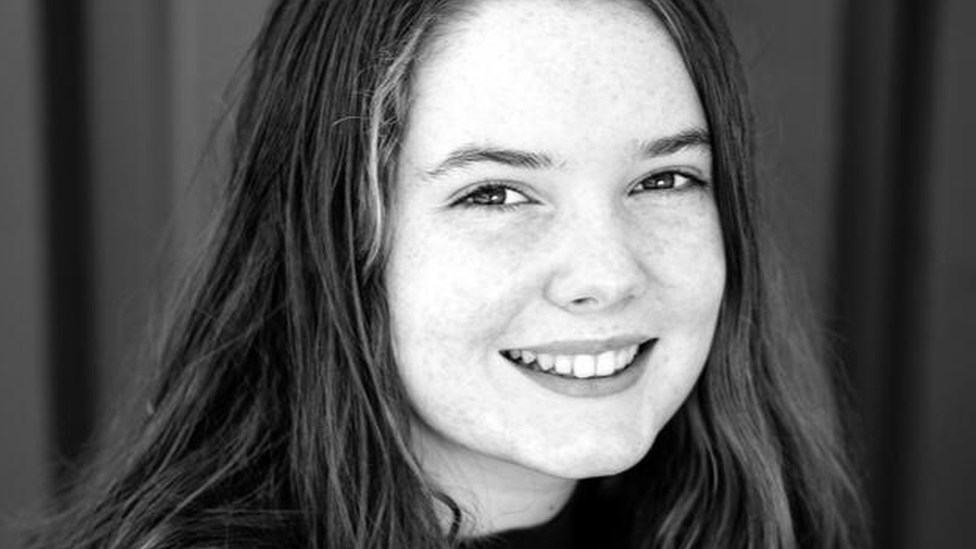
Erin said she was excited to be part of a historic moment
Erin, from Llannefydd in Conwy county, said she was excited to be involved in a "historic" moment.
The 17-year-old told BBC Radio Wales a lot of people had been "hesitant to register" due to a lack of understanding - but she had done research online.
"I always try and post things about registering to vote on my Instagram story to be able to give people the information that might help them and I definitely discuss politics with my friends," she said.

WALES ELECTION: THE BASICS
What's happening? On 6 May, people will vote to elect 60 Members of the Senedd (MSs). The party that can command the support of a majority of MSs will form the Welsh government. Find out more here.
What powers does the Senedd have? MSs pass laws on aspects of life in Wales such as health, education and transport - and have some tax powers.

Jess Blair of the Electoral Reform Society said the low registration figures were "disappointing but sadly unsurprising".
"Despite a major civil society push, thousands have fallen through the gaps," she said.
"The Senedd election will see a historic chance for young people to have their say. It's critical that everyone turns out to vote next week."
'TikTok influencers helped'
Allow X content?
This article contains content provided by X. We ask for your permission before anything is loaded, as they may be using cookies and other technologies. You may want to read X’s cookie policy, external and privacy policy, external before accepting. To view this content choose ‘accept and continue’.

While campaigning may traditionally be associated with knocking doors and posting leaflets, this year grime artists, fitness stars, and Instagram and TikTok influencers have been weighing in.
A group led by young people in Cardiff have been trying to get teenagers to vote by talking on social media about why their vote counts.
In the past few months, more than 10,000 clicks have gone through from the videos, created by Citizens Cymru Wales, to the voter registration website.
However, the campaigners said they felt young people were not being listened to by politicians and parties had not done enough to reach potential new voters.
'The passion is there'
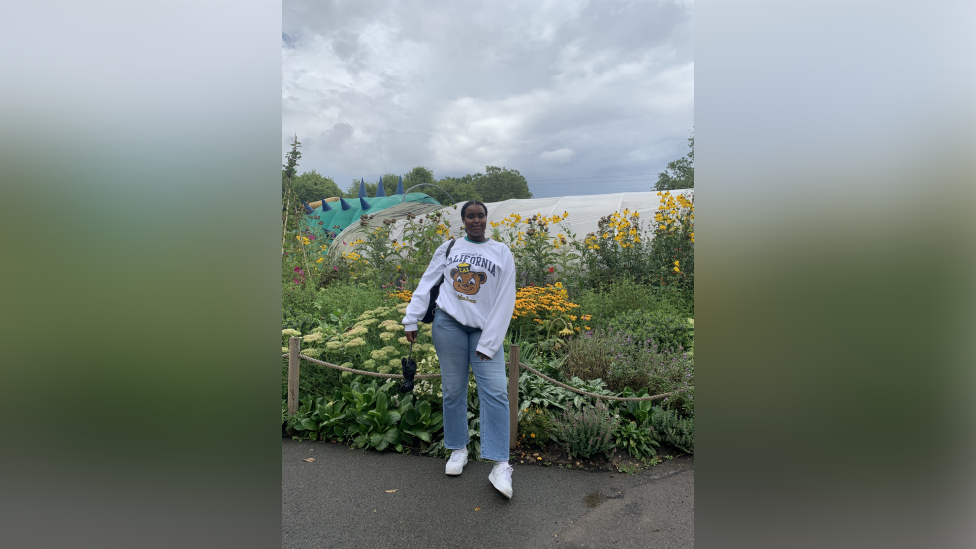
Nadila Hussein said not all young people had family and friends who talked about politics
Nadila Hussein, 20, said she did not believe any of the main political parties had engaged effectively with young people during the campaign.
The politics student at Cardiff University, who is a member of the Labour party, said: "It was just young people, living in their own areas, just thinking, we have this responsibility to get our peers voting.
"It's our futures, it's our lives, we had to pick up the mantle."
She said recent climate change and Black Lives Matter protests showed young people cared and wanted to see change.
"The passion is there... but I think the onus is now on parties and the government to find a way to apply that so that young people are going to be engaged in local politics," she said.
'It's our futures'
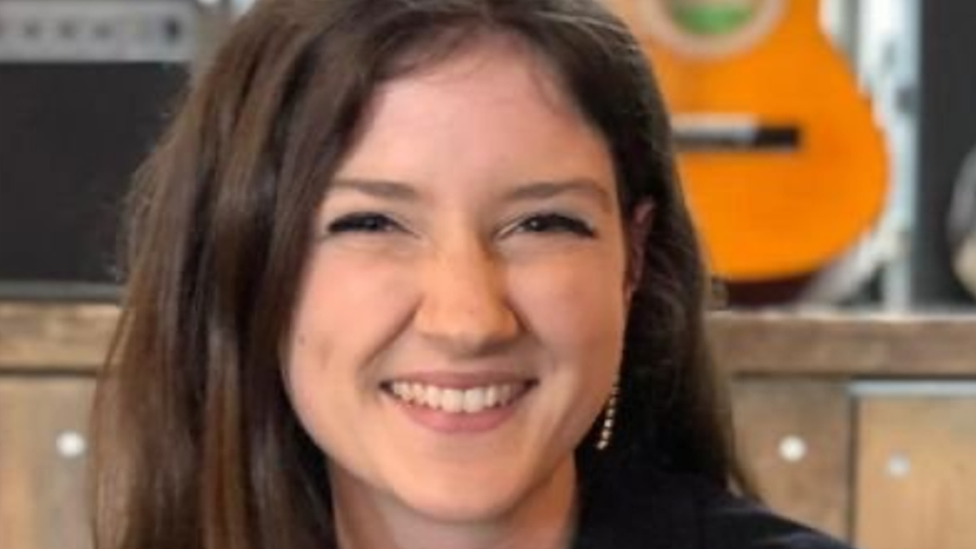
Kirstie Edwards says she feels hopeful more young people will register at the next election
Kirstie Edwards, 26, said many young people may not have registered to vote as they were either not aware, or did not think their vote mattered.
She said leaflets and TV adverts had not felt like they were aimed at her, and politicians had a "responsibility" to engage young people, especially those who may not have friends or family who were politically engaged.
"It's a momentous moment for young voices to be heard," she said.
"Politics isn't just for one type of group, it's for everyone... we hope that from doing videos with our influencers, the 16 to 17-year-olds who have got the opportunity to vote can do so with confidence their voice matters."
'Never had power before'
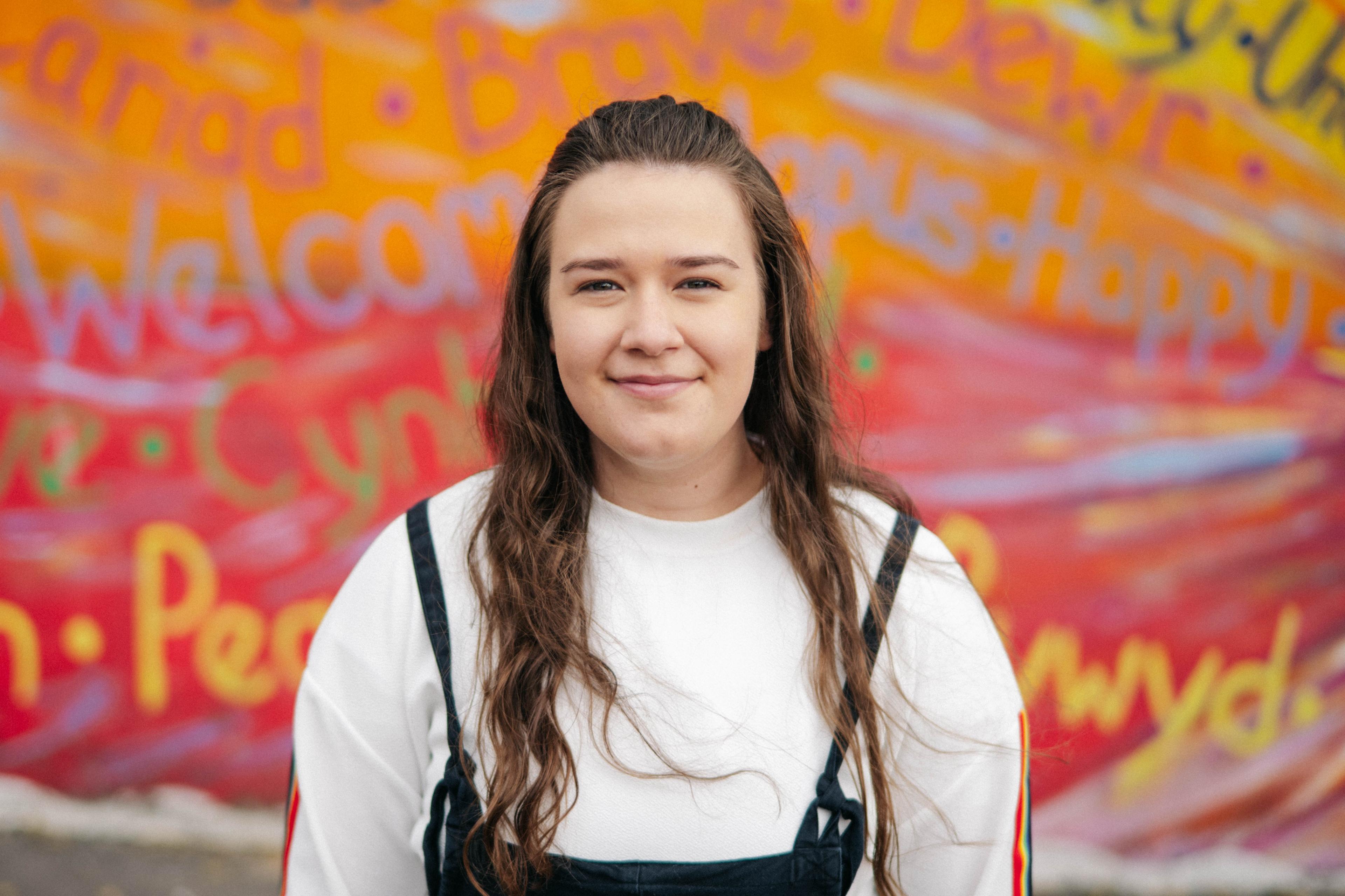
Megan Gillard has taken part in a project aimed at getting young people to vote
Megan Gillard, from Treorchy, Rhondda Cynon Taf, said she had always considered herself a political person but "never felt I had the power to do something".
The 18-year-old, involved in a project about voting by the National Youth Theatre of Wales, said with coronavirus there had been little opportunity in schools for education about the importance of democracy.
"I had to do a lot of learning on my own and a lot of young people struggle with that," she told BBC Radio Wales.
'Turnout could be low'
While thousands of young people may have registered to vote it may not mean they actually turn up to cast a ballot on the day.
Turnout for Welsh elections is lower than for the UK Parliament, with just 45.3% of all eligible voters casting a vote at the 2016 poll.
In the Brexit referendum 71.1% in Wales cast a ballot, while at the last general election in 2019, 66.6% voted.
Experts say it is unclear how the Covid pandemic might change numbers voting, with different lockdown rules highlighting differences between the UK and Welsh governments.
James Williams looks at how many people have turned out to vote in the past
Roger Awan-Scully of Cardiff University said he feared the turnout could be "exceptionally low" - with most attention on the pandemic.
He said it could be similar to the vote in 2003, during the Iraq war, when turnout fell to the lowest ever for a Welsh election, at 38.3%.
"With everything going on, it's possible that turnout could be really low... but on the other hand we have seen in some elections, globally, in the last year, we have seen some very healthy turnouts," he said.
"There are arguments it could be relatively high... it's certainly brought home to people that devolution is a reality and something that directly affects them.
"However, I'm increasingly inclined to be pessimistic about turnout... maybe some 16 and 17-year-olds simply won't take part, but it could actually be that a lot of older voters may not actually end up taking part either."
Prof Awan-Scully said the challenges of campaigning during a pandemic had meant parties had not really changed their campaigns to reflect the potential influx of young voters.
"In more normal times I am sure there probably would have been a bit more headspace to focus on the additional teenaged voters... but I think this has been squeezed by the circumstances of the pandemic," he said.

POLICY GUIDE: Who should I vote for?
FIRST TIME: Will 16-year-olds vote?

- Published1 May 2021
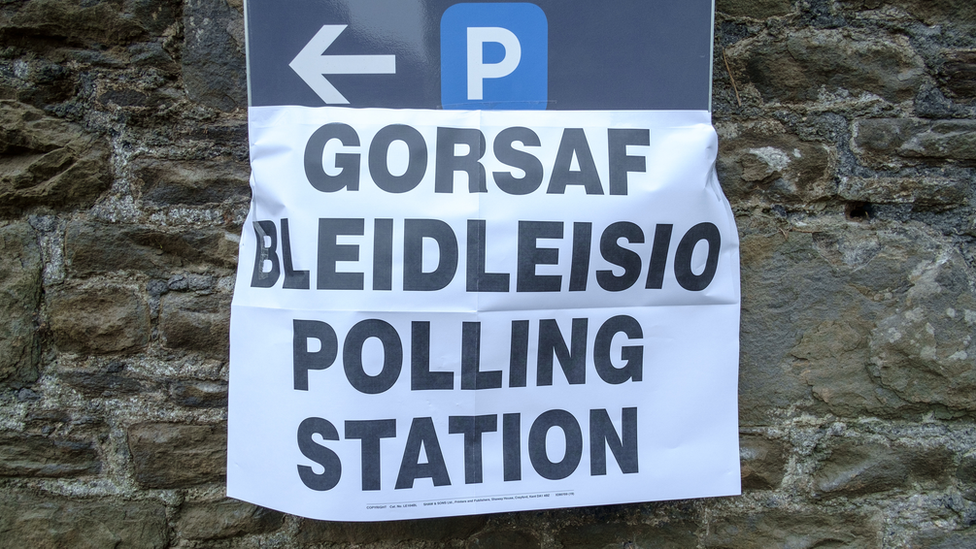
- Published22 April 2021
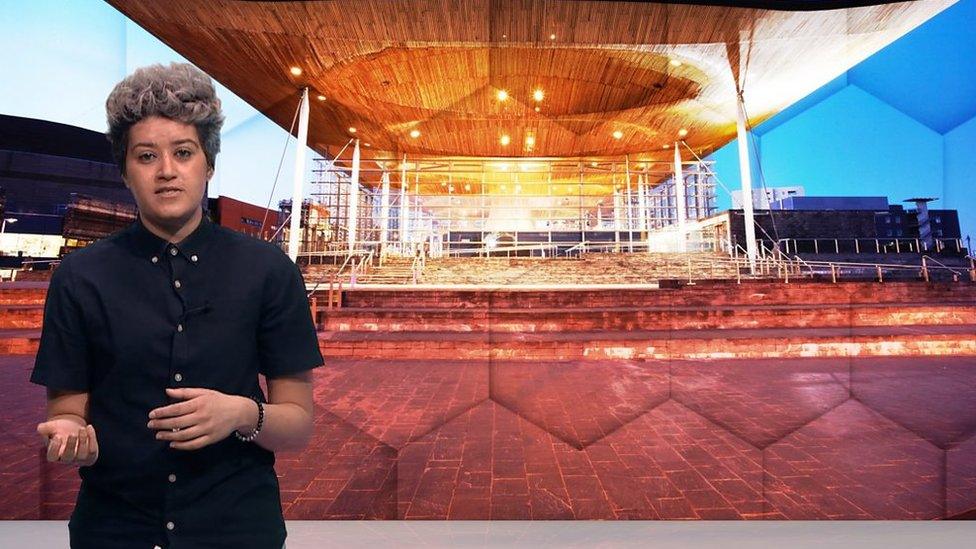
- Published22 April 2021
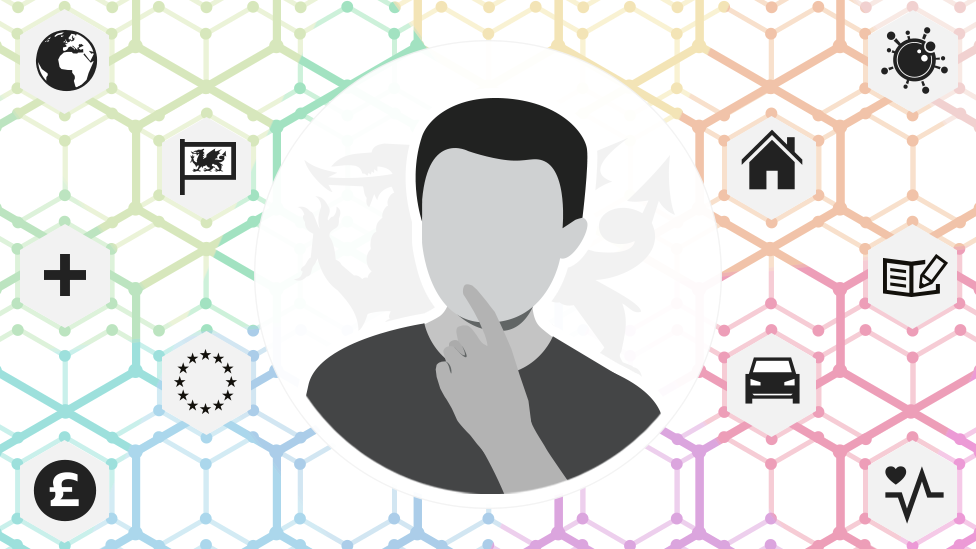
- Published6 May 2021
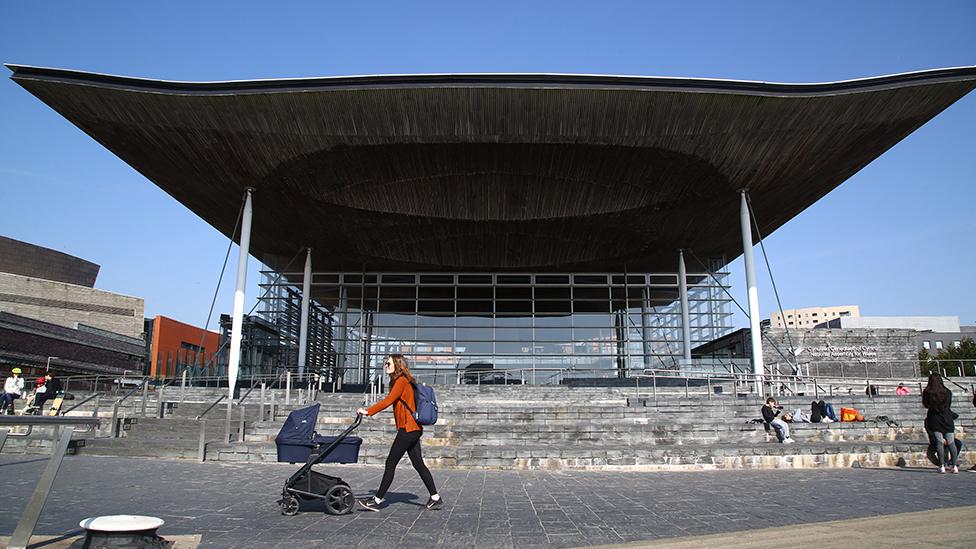
- Published30 April 2021
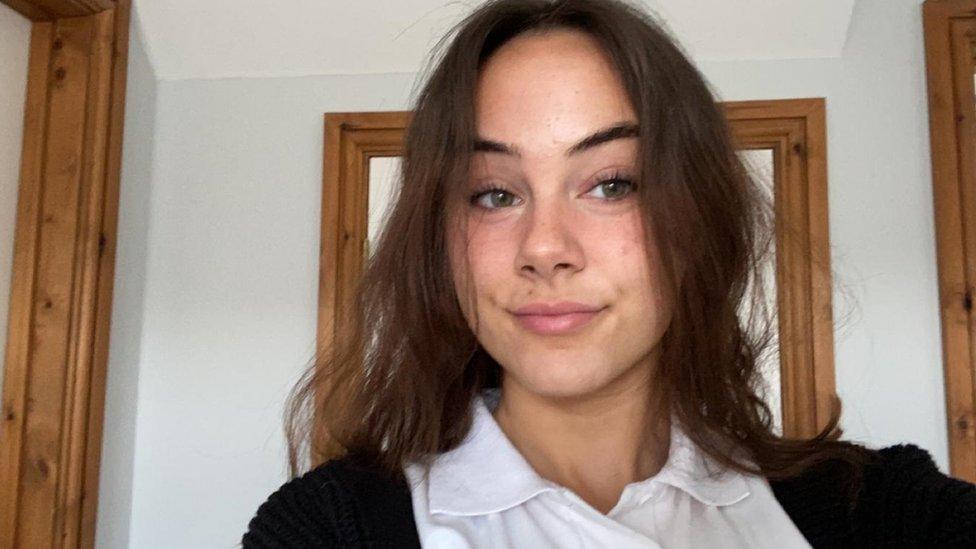
- Published16 April 2021
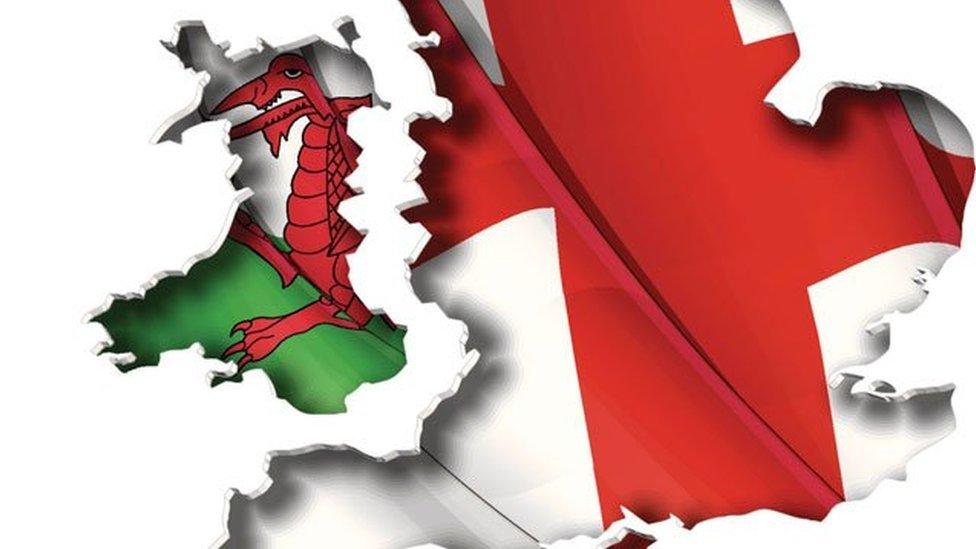
- Published16 April 2021
